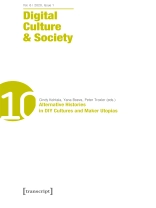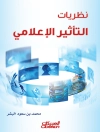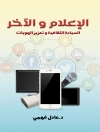As DIY digital maker culture proliferates globally, research on these practices is also maturing. Still, particular terminologies dominate beyond their Western contexts, and technocultural histories of making are often rendered as over-simplified technomyths that render invisible diverse local practices. This special issue brings together contributions that highlight how historicising plays a role in mythmaking and the creation of social imaginaries. The peer-reviewed articles present cultural-historical perspectives, technology and design histories and historiographies, and alternative histories related to postcolonial resistance. The contributions illustrate the relevance of craft to making as a reparative practice after the Salvadoran Civil War and as a leisure activity to spark »innovation« in mid-century corporate culture; the political-economic background to the diffusion and differentiation of community workshops in contemporary Spain and post-war Germany; and the various aesthetics and politics of technology culture manifestos over the years.
The issue features an interview with Peter Harper of the Alternative Technology movement by Simon Sadler, as well as an interview with Felix Holm and Suné Stassen on the antecedents of making and design in South Africa. The special issue is rounded off with six short alternative (hi)stories of DIY making including multiple practices, geographies and temporalities.
Про автора
Cindy Kohtala is a postdoctoral researcher in the department of design, Aalto University School of Arts, Design and Architecture, Espoo, Finland. Her research focuses on how peer-to-peer communities in fab labs and makerspaces organize themselves and address socio-environmental sustainability in their visions and practices. She also writes and lectures on urban activism and sustainable design.
Yana Boeva is a postdoctoral researcher in the cluster of excellence on Integrative Computational Design and Construction for Architecture at the University of Stuttgart. She has studied makerspaces and fab labs in Western Europe and Canada focusing on the sociopolitical and historical dimensions of digital fabrication in design. Her research explores the transformation of design, architectural practice, and different user perceptions with the inclusion of active matter and automation in contemporary fabrication models.
Peter Troxler is a research professor at Rotterdam University of Applied Sciences, the Netherlands. He studies the impact of readily available direct digital manufacturing technologies as well as of the makers’ design and manufacturing practice on the creative and manufacturing industries; and the emergence of networked co-operation paradigms and business models based on lateral governance and on open source principles.












